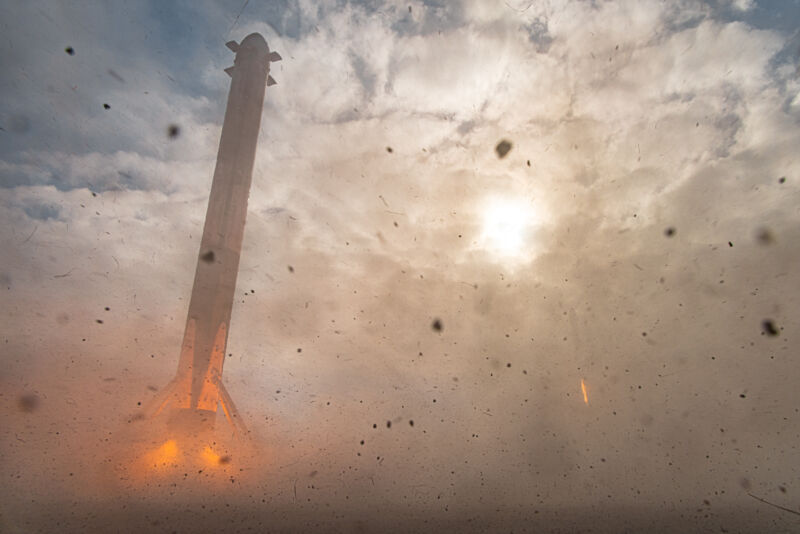
Welcome to Edition 5.16 of the Rocket Report! If you’re counting, there are now fewer than 60 days until the end of 2022. How many more US rockets will make their debut before the end of the year? SLS? Terran 1? Super Heavy? RS1? None of the above? You didn’t ask, but my over/under would be 1.5 of the above, and that may be a tad optimistic.
As always, we welcome reader submissions, and if you don’t want to miss an issue, please subscribe using the box below (the form will not appear on AMP-enabled versions of the site). Each report will include information on small-, medium-, and heavy-lift rockets, as well as a quick look ahead at the next three launches on the calendar.

Rocket Lab to attempt booster recovery again. The US-based rocket company says it will make a second mid-air recovery attempt of an Electron booster during the Friday launch of a Swedish scientific satellite, Space News reports. This “Catch Me If You Can” mission is scheduled to launch November 4 at 1:15 pm ET (17:15 UTC) from the company’s Launch Complex 1 in New Zealand. The launch will be Rocket Lab’s second attempt to recover the Electron’s first stage, descending under a parachute, using a helicopter.
Happy hunting! … In the first attempt May 2, a hook hanging from the helicopter grabbed the parachute, but the pilot released it moments later after noticing what the company called “different load characteristics than what we’ve experienced in testing.” The stage instead splashed down and was recovered by a boat. “Our first helicopter catch only a few months ago proved we can do what we set out to do with Electron, and we’re eager to get the helicopter back out there and advance our rocket reusability even further by bringing back a dry stage for the first time,” Peter Beck, chief executive of Rocket Lab, said in a statement about the upcoming launch. (submitted by Ken the Bin and Tfargo04)
Firefly seeking additional capital. Fresh off of putting its first Alpha rocket into orbit, Firefly Aerospace is seeking to raise as much as $300 million in a private fundraising round, Reuters reports. The Texas-based company was valued at more than $1 billion when private equity firm AE Industrial Partners became its controlling shareholder in March, but it has not set a valuation for this round.
How much money is out there? … The new funding would be used to help complete construction of manufacturing facilities for Firefly’s Alpha rocket in Cape Canaveral, Florida, and accelerate development of a medium-lift rocket the company plans to build with Northrop Grumman. Given the challenges of raising new capital for space-based companies in the current environment, it will be interesting to see how much Firefly can tap into. (submitted by Ken the Bin)
Residents fight back against Canadian engine tests. Trent Hills, a municipality in Ontario about halfway between Toronto and Ottawa, has asked the Canadian launch company SpaceRyde to cease rocket engine testing. “Trent Hills has been in receipt of many inquiries, concerns and complaints pertaining to rocket engine testing taking place in the rural area at a site on County Road 29,” Trent Hills Now reported. On October 7, the local government asked SpaceRyde to voluntarily cease testing.
Maybe they can work it out? … The company has until later this month to respond. Some local residents want nothing to do with SpaceRyde, which is aiming to develop a rocket to be launched from a balloon. The municipality, however, said it would be willing to work with the rocket company: “If there remains a desire to continue the use, the Municipality has a range of options both to engage with the site owner and occupier and to address the public’s concerns.” (submitted by JC)
https://arstechnica.com/?p=1894795

